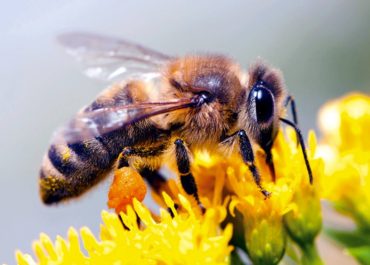 Bees are in trouble — in recent years, the bee population has plummeted. A compilation of problems is to blame:
Bees are in trouble — in recent years, the bee population has plummeted. A compilation of problems is to blame:
- One or more bee diseases or parasites, such as mites;
- Pesticides, especially insecticides used in the wrong manner;
- Loss of habitat and nutritious forage plants.
Bees are essential to the production of one out of every three bites of food that we eat. A growing body of science has implicated neonicotinoids (neonies), the world’s most widely used pesticide, as a key factor in recent global bee die-offs. The European Union, some cities, states, federal agencies and garden retailers have all taken steps to restrict use of these bee-killing insecticides.
Neonicotinoids are a class of neurotoxic pesticides that kill insects by blocking nerve impulses, causing paralysis.
Neonies are part of our current chemical-intensive industrial farming system that is harming a host of important species as well as our soil our waterways. Beekeepers are suffering big honeybee losses due to pesticides.
Some big box stores, smaller hardware stores and drug store chains are still stocking garden products that contribute to be in other pollinators’ deaths. Nursery stock plants treated with systemic insecticides make the whole plant toxic to bees — root to flower.
The four main chemicals are imidacloprid, clothianidin, glyphosate and carbaryl.
Other chemicals to avoid are malathion, pyrethrins, bifenthrin, dinotefuran, thiamethoxam, coumaphos and acetamiprid.
How can you help save the bees?
- Read directions, use lowest dosage and do not overspray.
- Don’t buy seeds coated with neonicotinoids.
- Do not spray when bees are foraging.
- Stop toxic lawn chemical use and replace with organic lawn management.
- Find natural methods of pest, disease and weed control.
- Check labels for dangerous chemicals.
- Grow your own plants from untreated seeds in organic potting soil or purchase organic plant starts.
For more information, visit Friends of the Earth Organization at beeaction.org.
Contributed by Brenda Smith, Board Trustee, West Sound Beekeepers Association.







